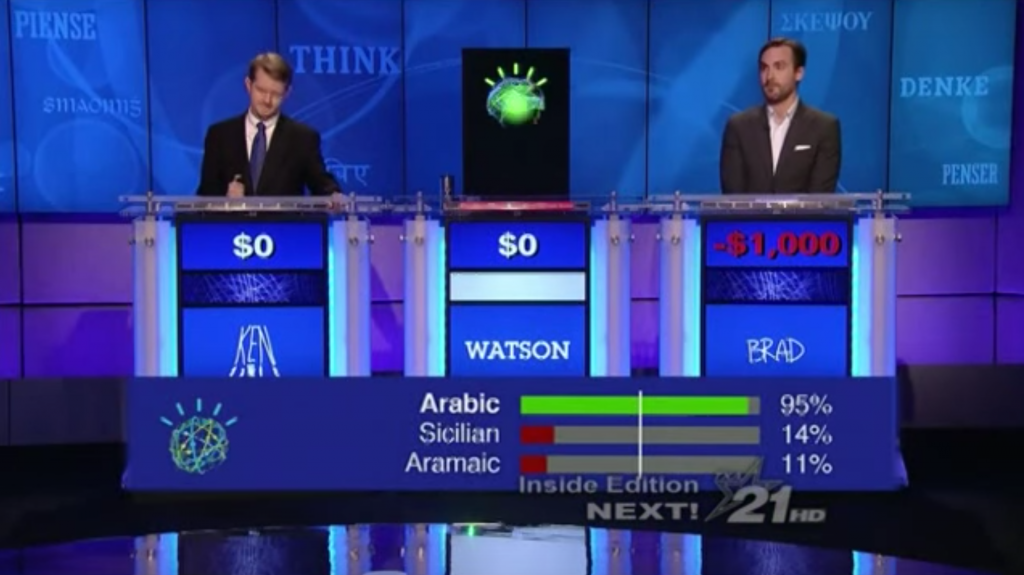Cognitive Technology in Healthcare: Looking to the Future with IBM Watson Health
// By Jane Weber Brubaker //
IBM’s cognitive computer Watson became a household name and overnight sensation in 2011 when it beat two of Jeopardy’s top contestants, smoothly handling the show’s lineup of cleverly named categories and obscure facts:
“Dialing for Dialects for $800,” says Watson, choosing a category in the opening round.
Host Alex Trebek reads the clue: “While Maltese borrows many words from Italian, it developed from a dialect of this Semitic language.”
Watson beats its opponents to the buzzer. “What is Arabic?” asks Watson.
“You are right,” says Trebek.
“$1,000, same category,” Watson requests, and continues answering questions correctly, ultimately winning the $1 million challenge.
Watson was specifically developed and trained to compete on Jeopardy, as a high-profile test of human vs. machine thinking and cognitive technology. To compete, Watson ingested vast amounts of information from a wide range of sources, as well as thousands of Jeopardy answers and their corresponding correct questions. It then had to learn the nuances of clues that use puns and idioms, recognizable by humans, but complex for computers. The technology has the capacity to learn and improve its accuracy if it has enough examples. In one phase of training, featured in a PBS Nova documentary, it took Watson several examples of correct answers in one Jeopardy category to understand that the answer had to be the name of a month.
Physicians Take Note
Soon after Watson’s victory, IBM began to get inquiries from physicians, particularly oncologists, interested in knowing if cognitive technology could be applied in a clinical context. These discussions spawned IBM Watson’s earliest partnership, with Memorial Sloan Kettering Cancer Center. The organization refers to itself as “Watson’s oncology teacher.” As new information is added, Watson for Oncology learns and improves its accuracy.

Suzanne Sawyer, Vice President, Portfolio Marketing at IBM Watson Health
Suzanne Sawyer is Vice President, Portfolio Marketing at IBM Watson Health. “An oncologist can query Watson to say, ‘What are the most appropriate treatment options and clinical trials for this cancer and this patient?” Sawyer says. “Watson brings back the knowledge of MSK oncologists and a vast repository of clinical research that’s been done around those types of cancers, or that patient profile.” The results are evidence-based recommendations, ranked and scored for relevance, and available in seconds for a physician’s consideration.
IBM Watson Health partners with other leading healthcare organizations, including Cleveland Clinic, Mayo Clinic, MD Anderson, Baylor College of Medicine, CVS, Apple, Medtronic, Welltok, Johnson & Johnson, the American Heart Association, the American Cancer Society, and the American Diabetes Association.
This content is only available to members.
Please log in.
Not a member yet?
Start a free 7-day trial membership to get instant access.
Log in below to access this content:


